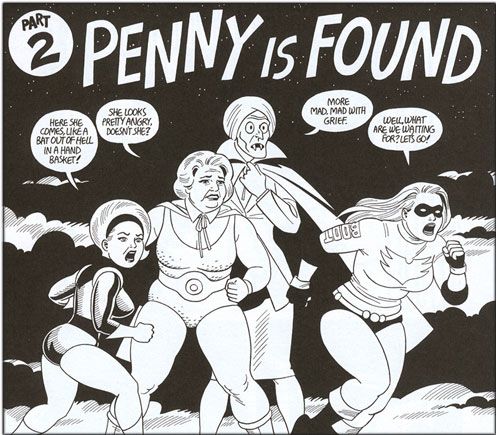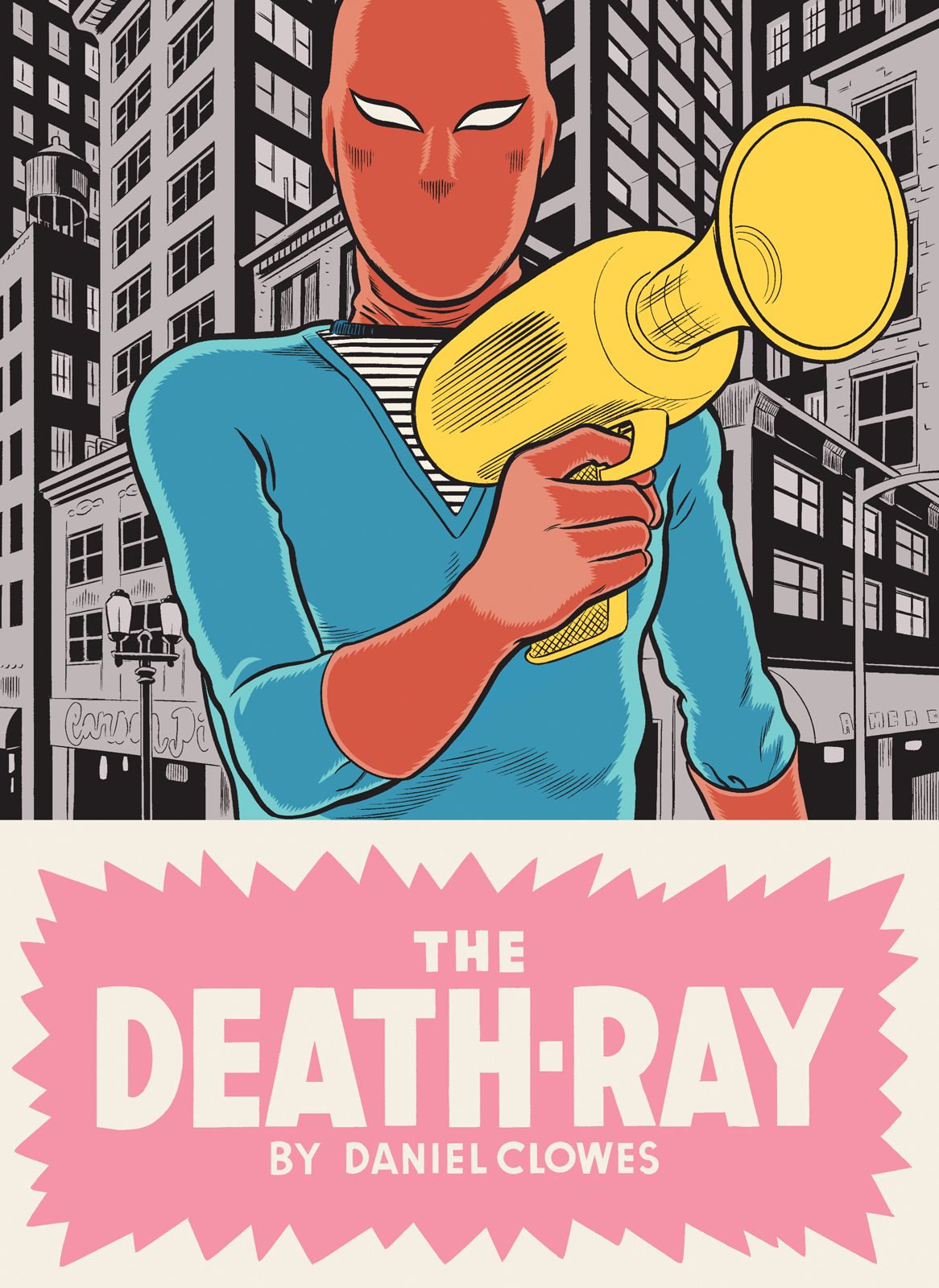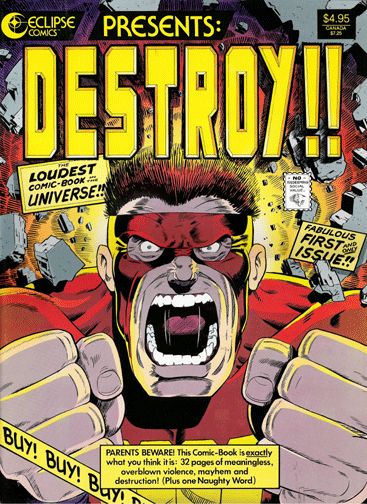Apart from all the "new 52" brouhaha, one of the more interesting and talked about bits of online was Michael Fiffe's essay on the delineations between mainstream (i.e. superhero) comics and the alt/indie comics scene. Spinning off of his essay, I thought it would be fun to list my own favorite super-styled tales by folks who usually don't do that type of material, some of which Fiffe talked about in his essay.
Note: For the purposes of this article I'm deliberately avoiding any of the officially sanctioned productions from the Big Two, namely Strange Tales and Bizarro Comics, just to make it a wee bit harder.
1. The Death Ray by Daniel Clowes. Clowes' rare dip into super-genre waters involves Andy, a withdrawn and awkward teen being raised by his grandfather who discovers his late scientist dad gave him the ability of super-strength whenever he smokes a cigarette, as well as a special gun that helps ... get rid of unwanted things and people. Unable to find a good use for his newfound powers -- his attempts at heroics fall flat on their face -- things quickly spiral out of control. Yes, to some extent the book is a comment on the superhero genre's inability to deal with or examine real life issues, but Clowes is not drawing on snark here; Death Ray is a haunting character study of a young man whose inner demons drive him to do horrible things. Easily Dan Clowes best, richest work to date, Drawn & Quarterly is releasing a spiffy new hardcover edition of the book this fall, so there's really no excuse not to check it out.
2. The Ti-Girls by Jaime Hernandez. The Hernandez brothers have never kept their love for classic superhero stories a secret, so it really wasn't that much of a surprise when Jaime opted to mark the debut issue of Love and Rockets New Stories in 2008 with The Ti-Girls, about a an older all-female superhero team that reunites to stop a newly superpowered Penny Century from running amok due as she tries to find her lost children. The plot's a bit convoluted, but there's no question Hernandez has a knack for delineating kick-ass fight scenes. Ti-Girls isn't just an example of how alt-cartoonists can enliven the genre, it's an example of how poorly the Big Two handle female characters in general.
3. Destroy by Scott McCloud. McCloud's oversize smash-em-up, done after completing Zot! in 1986, is the most obvious parody of the bunch on this list, but it's a fun parody, winking with affection at the sheer ludicrousness of most superhero battles. One long fight scene from beginning to end, Destroy is nothing more or less than two overpowered musclemen laying complete waste to New York City. If that doesn't tickle your fancy I don't know what will.
4. The Amazing Life of Onion Jack by Joel Priddy. AdHouse's Project Superior anthology -- a thick book of superhero tales by alt-cartoonists -- was successful enough that publisher Chris Pitzer briefly attempted to spin it off into a pamphlet series. That in turn led to Priddy contributing this story for AdHouse's 2004 Free Comic Book Day, turning in what ended up being the best of the bunch. Jack is a charming, minimalist tale about a WWII-era superhero who really would prefer to be a fine chef, but keeps getting pulled into battle. Each page chronicles a different era in the hero's life, which really plays nicely to Priddy's spot-on comedic timing. Though the original issuemight be hard to find, the story, thankfully is also included in the 2006 edition of The Best American Comics.
5. Batman by Josh Simmons. Simmons is one of the pre-eminent horror cartoonists working in the field today, and in this unofficial "tribute" he applies all his creepy skills to the Dark Knight. Batman's been portrayed as borderline psychotic in some past DC books, but never to the extent he is here, as his war on crime seems to have driven him completely insane, to the point where he's sleeping on dirty roofs and preying on helpless junkies. Even Catwoman has lost interest in the poor slob. It's an unsettling in the best sense of the word that never comes off as a simple "superheroes are dumb" screed.
6. High School Analogy by Ron Rege Jr. Not every story in the seminal Coober Skeber #2 (i.e. "the Marvel Benefit Issue") was gold, but it contained enough stellar work (and more significantly, introduced readers to the Fort Thunder crowd) to be fondly remembered and highly influential. One of the highlights -- arguably the best story in the entire anthology -- was Ron Rege Jr's take on Spider-Man. Drawing heavily on Ditko and Lee's original stories, Rege plays up Peter Parker's angst and isolation with a slightly modern spin ("I'm on edge every day when I come to this fucking place," Parker thinks about school at one point), to really capture the sort of inner turmoil a lot of teen-agers go through. In a way, Rege got what Lee and Ditko were doing better than some of the artists and writers that followed the duo in the "real" Spider-Man books.



